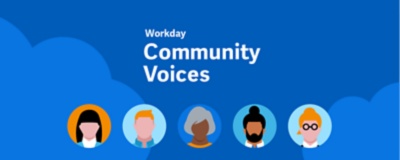Every year, industry analysts gather at the Workday Innovation Summit to hear about our company’s latest product innovations and to gain insights from our customers. Due to the pandemic, the event looked a little different this year with it being completely virtual. However, that didn’t slow down my excitement to host a keynote session with our customer, H&R Block.
I chatted with Alan Lowden, CIO at H&R Block, about their experience partnering with Workday and how they’re enabling business continuity through a global crisis. Excerpts from our conversation are below.
Can you give a little background on H&R Block?
H&R Block has been a trusted company for tax preparation since 1955, and during that time we have prepared more than 800 million tax returns. We have 10,000 retail offices across the U.S., with an office in every congressional district. Especially in some of our small-town locations, our tax pros comprise the fabric of that community and are an important advisor to local small businesses.
In addition to the retail tax office setting we are known for, we have an award-winning, do-it-yourself online tax service, a suite of financial products to help consumers manage their cash, and we serve the small business market with products and services such as bookkeeping and payroll. We have operations around the world, including our subsidiary Wave Financial, the leading fintech company in Canada.
One thing that sets us apart is through all of our products and services, we believe in the importance of human help. Our 100,000 associates provide a human advantage that gives people the help they deserve, when and how they need it. We recognize the importance of innovative digital solutions, but we believe the best blend is digital capabilities with human expertise and care. That is core to how we do business, whether we prepare your taxes or help your small business with bookkeeping.
Let’s talk about how you and I first met, and how H&R Block came to select Workday applications—I think it's an interesting story.
When I came into the CIO role, the company had just kicked off a project to replace our human capital management (HCM) system with one of your competitors. That implementation was problematic out of the gate. Concurrently, we had been talking to your team about implementing Workday Financial Management. Since the HCM project with your competitor was failing, we decided to pursue both Workday HCM and Financial Management with the goal of implementing both components within 12 months. I was very skeptical about your ability to deliver both HCM and Financials within 12 months when your competitor’s HCM project was planned over 24 months and was over budget and months behind schedule. You kept saying, "You’ve got to trust us." You challenged us and, ultimately, we put our faith in you.
In the end, HCM and Financials were delivered on time and on budget, and we also added other components in that timeframe to embrace Workday’s full application suite. We love your philosophy around the power of one and the platform works as advertised. We wanted less to manage and that's what Workday was able to deliver.
You first deployed Workday Financial Management and then went live with Workday Human Capital Management and Workday Payroll Management a few months later. How was your experience with our company during the deployment?
As I mentioned earlier, we had a bad experience with our previous HCM vendor, so we were a little hesitant about how it would go at first. Our experience with Workday was fantastic. You did what you said you'd do and brought us a great product, which we expected. But you also came to the table with a high-quality group of experts in your consulting and delivery teams who knew the product inside and out. Your team embraced a consultative mentality, listened to our unique challenges, and came up with creative solutions to the things that the product didn't handle out-of-the-box.
To be clear, there were issues with the project along the way as you encounter with any project of significance. The key is how each party responds to issues, which is what separates vendors from partners. Steel gets stronger through fire. In the challenging times, your team acted as true partners by acknowledging problems, adapting, and developing solutions. This served to further strengthen our relationship.








